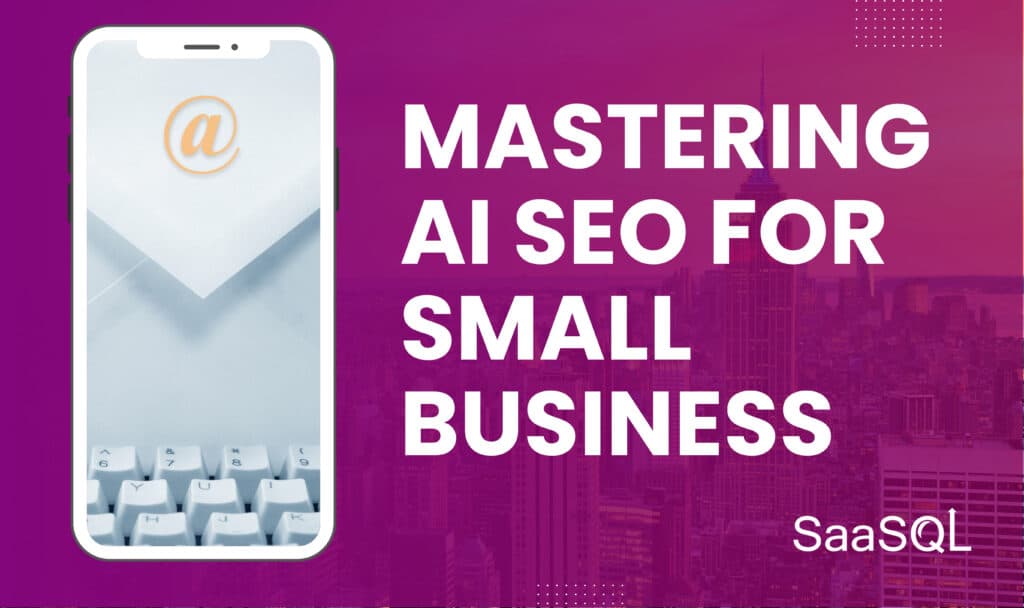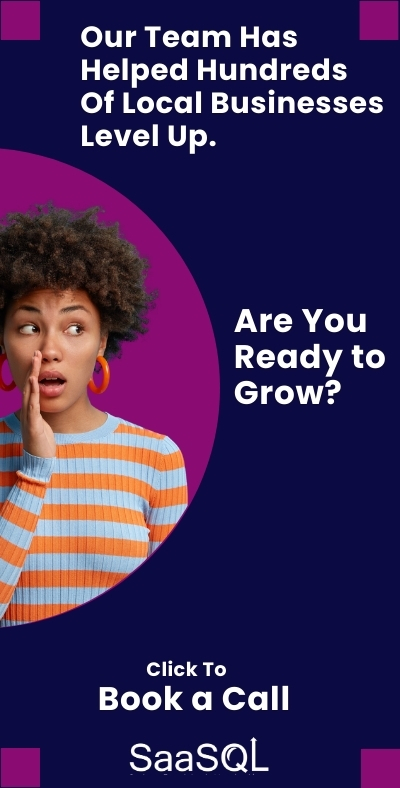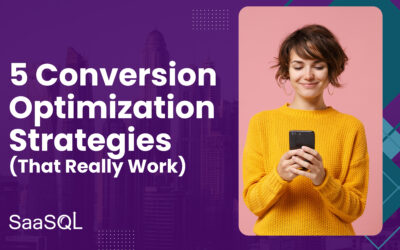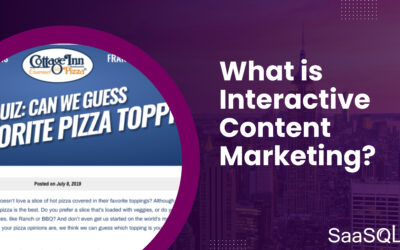How Small Businesses Can Use AI to Personalize Email Campaigns and Drive More Leads
There’s a reason email keeps showing up on every list of highest-ROI marketing channels. It works. Most importantly, it’s not just for big companies with sophisticated systems, but for small businesses too. Especially now.
What’s changed is how incredibly smart email has become, and more importantly, how accessible it now is. AI email marketing for small business has combined the core value of traditional email marketing with powerful generative AI tools that take things to a whole new level. With the right tools, even a local dentist or boutique fitness studio can deploy email campaigns that feel handcrafted for each recipient.

It’s the power of combining automation with real personalization.
A few years ago, email automation mostly meant a welcome series and maybe a well-timed follow-up. Now, with the addition of AI, small businesses can react to customer behavior in real time, in ways feels far more relevant to the recipient. If someone clicks a link but doesn’t buy, the system knows. If a prospect opens five emails and still doesn’t schedule a call, it knows that too. And it adjusts.
The result is fewer missed opportunities, more relevant messages, and most importantly, more leads.
But let’s not get ahead of ourselves. First it helps to understand why email is still the MVP of marketing channels, and how AI is reshaping its role for small businesses looking to compete at a higher level.
Why Is Email Still the Most Valuable Tool for Small Business Growth?
Because it delivers. That’s really the short answer. According to multiple industry benchmarks, for every dollar spent, email marketing brings back an average return of $36. No other channel matches that. Not social, not paid ads and not even organic search.
For small businesses that operate in an environment where every dollar matters, it’s a level of ROI that can be a game changer.
Part of the reason email holds up so well is that it builds upon permission. People opt in and they expect to hear from you. That ultimately makes the engagement more intentional than a boosted Facebook post or a random Google ad.
And unlike paid channels where costs increase as volume increases, email costs stay relatively flat as you grow. Send 100 emails or 10,000 and the economics hardly change. That type of predictability helps local business owners manage their budgets while still scaling reach.
But what really sets email apart is its dual purpose. It’s not just a tool used for selling. It nurtures, it informs, and it retains. You can keep leads warm, bring back lapsed customers, and guide buyers through your sales funnel, all with the same platform.
When done right, email doesn’t even really feel like marketing. It feels like an ongoing relationship. That’s especially true when it’s personalized and behavior-driven. Something AI now makes easier than ever.
The question isn’t whether email is still valuable. The question is whether small businesses are using it to its full potential. Most aren’t. And that’s exactly where AI can help.
What Makes AI Email Marketing for Small Business So Effective?
It adapts. That alone makes it different.
Most email campaigns follow a plan. A sequence of messages goes out based on a fixed schedule. It might work. It might not. Either way, there’s not much feedback in the system.
With AI, the feedback loop is built in. It notices when someone opens every message but never clicks. It adjusts if someone signs up and goes quiet. Instead of just sending the next scheduled email, it recalibrates. In real time.
This matters because attention is limited. Sending the right message at the right moment is the difference between being ignored and being remembered.
AI also helps eliminate guesswork. No more wondering which subject line works best or what time to hit send. AI tools test and optimize without the need for constant oversight. That’s especially useful for small business owners who don’t have time to run A/B tests or sift through analytics.
But it’s not just about efficiency. It’s about context.
AI makes it easier to personalize based on behavior, preferences, and past actions. Someone who clicked on pricing info gets different follow-up than someone who only looked at a blog post. This isn’t just smarter marketing. It’s more respectful. People notice when businesses talk to them like individuals instead of entries in a database.
When email marketing gets this intelligent, the outcome shifts. Engagement rates go up. Lead quality improves. Conversion timelines shrink.
How Does Personalized Email Automation Actually Work?
It starts with data. Not a lot, but enough to know who your audience is and what they’ve done. Did they visit a product page? Open an email but not respond? Sign up and disappear? These are signals. AI tools recognize patterns in that behavior and shape messages accordingly.
From there, personalization engines build dynamic content. This could mean swapping out product recommendations based on browsing history. Or sending a different subject line depending on a user’s location. Even subtle changes, like tone or call to action, can be customized.
What used to take hours of manual segmentation now happens behind the scenes. The AI decides who gets what message, when, and why. And it keeps learning.
The real value here isn’t just better engagement. It’s automation that feels human. When someone gets an email that speaks to what they care about, it doesn’t feel like a blast. It feels like a message worth opening.
For small businesses, this means acting like a brand with a full team of copywriters and analysts. Without needing one.
And the best part? Many of these platforms don’t require complex setups. Most integrate directly with your CRM or website. Once the behavior data flows in, the automation kicks in.
Personalized email automation removes the burden of constant decision-making. It replaces it with smart systems that respond in real time, keeping your business connected to leads without overwhelming your schedule.
That’s why AI is more than a trend. It’s a better way to communicate.
How Can You Master Small Business Email Segmentation Without a Big Team?
Most small businesses assume segmentation takes too much time. And it used to. But AI changes the equation.
Here’s how AI-driven segmentation simplifies the process:
- Real-time behavioral sorting: Automatically groups contacts based on their actions—clicking sales emails, opening newsletters, or going quiet.
- Lifecycle awareness: Segments by where someone is in the buyer journey, from awareness to repeat purchase.
- Intent and sentiment detection: Analyzes replies and engagement to adjust messaging tone and offer type.
- Rule-free precision: No need to create manual tags or filters. The system adapts dynamically based on data patterns.
What this means for your business:
- Higher open and conversion rates: Messages match the recipient’s behavior and preferences.
- Fewer unsubscribes: Relevance keeps your list engaged.
- Smarter offers: Discounts go only to price-sensitive contacts. VIPs get early access instead.
- More leads, less noise: Every campaign speaks to a specific group, increasing efficiency.
AI takes the guesswork out of segmentation. And that’s what makes it such a powerful tool for small teams who need to do more with less.
What Role Do Lead Nurturing Emails Play in Converting Prospects?
Most people don’t buy on the first interaction. Or the second. That’s where lead nurturing comes in.
It’s not about flooding inboxes. It’s about staying present. Reminding leads who you are, what you offer, and why it matters. And doing it in a way that feels timely, not pushy.
AI improves this process by turning it into a conversation, not a campaign. Here’s how:
- Behavior-based triggers: Follow-ups are sent based on user activity, like browsing a service page or clicking pricing.
- Dynamic sequencing: Messaging adapts depending on whether someone engages or stays silent.
- Predictive timing: AI determines the best moment to re-engage, increasing the odds of a response.
- Personalized content blocks: The message itself changes based on the reader’s profile and stage in the funnel.
Done right, lead nurturing builds trust. It keeps leads informed, curious, and gradually more ready to take action.
For small businesses, this means converting interest into intent without relying on a full-time sales team.
It also ensures you’re not starting from scratch each time a new lead shows up. Instead, you’re picking up the thread of an ongoing dialogue.
Can Automated Email Follow-Ups Replace Manual Outreach?
They already do. And often, they do it better.
Manual follow-ups are inconsistent. People forget. Timing gets off. Messages sound rushed or too generic. With automation, those problems disappear.
AI takes what used to be a task list and turns it into a system. Here’s how it helps:
- Timely follow-ups: Emails go out exactly when they should—after a form fill, a link click, or a no-show.
- Message variation: Follow-ups aren’t duplicates. The system rotates messages and adjusts tone to avoid repetition.
- Lead scoring: AI prioritizes who to follow up with based on engagement level, not just activity.
- Multi-channel syncing: Some tools sync follow-ups across email, SMS, and even chat.
For small businesses, this means less time chasing leads and more time closing them. The follow-ups don’t just go out—they go out with purpose.
It’s not about replacing human effort entirely. It’s about using automation to do the things humans aren’t great at: perfect timing, scale, and repetition.
The result is a steady rhythm of outreach that keeps your brand top-of-mind, even when you’re not actively pressing send.
Which Tools Are Best for A.I.-Driven Email Campaigns?
There’s no shortage of options, but not all are built with small businesses in mind. Some are overkill. Others are perfect fits.
Here’s a breakdown of the most effective AI email tools for small teams:
- Mailchimp with AI Predictive Segments: Ideal for businesses just getting started. It’s easy to use and now includes predictive analytics and content suggestions. https://mailchimp.com
- ActiveCampaign: Strong on automation. It offers behavior-based workflows, lead scoring, and native CRM features. https://www.activecampaign.com
- SaaSQL Email Automation Suite: Built for performance marketing, this platform includes behavior-based triggers, lead scoring, and native CRM integration. It’s designed to help small businesses scale without complexity.
- HubSpot Starter Suite: Built-in AI features like subject line recommendations, send time optimization, and lifecycle tracking. A good step up for growing businesses. https://www.hubspot.com/products/crm/email-marketing
Most of these tools integrate directly with websites, CRMs, and landing page builders. That means setup is fast and workflows stay connected.
What to look for in an AI email platform:
- Easy integration with your CRM or sales pipeline
- Clear automation builder with behavior triggers
- Personalization options for subject lines, content, and timing
- Transparent analytics tied to actual business outcomes
At SaaSQL, campaigns often use combinations of these tools depending on business size and sales motion. The goal isn’t just automation—it’s automation that leads to growth.
If a platform helps you send better emails without requiring more time or a bigger team, it’s doing its job.
How Can You Measure the True Impact of AI on Email Lead Generation?
Metrics still matter, the question is just which ones? AI changes how you track success. It also helps you make sense of the numbers faster.
Click-to-lead conversion rate is a key metric, not just who opens or clicks, but who actually becomes a lead. Engagement over time tells a fuller story than a single campaign snapshot. AI also assigns lead quality scores, helping prioritize follow-ups by focusing on those most likely to convert. And attribution paths show which emails, or combinations of emails, actually drove action.
The point isn’t to chase vanity metrics. Open rates don’t always translate into revenue. Instead, track the behaviors that show intent. Are leads engaging more after the fifth email? Are they clicking on pricing pages or scheduling demos?
AI can surface those insights without you having to dig for them. Some platforms even offer recommendations automatically, when to follow up, what to change, which segments are underperforming.
For small businesses, this kind of visibility can be a turning point. It makes marketing measurable. And when marketing becomes measurable, it becomes scalable.
Frequently Asked Questions
What is AI email marketing and how does it help small businesses?
AI email marketing uses machine learning to automate and personalize email campaigns based on user behavior. For small businesses, this means sending the right message at the right time, without manual effort.
Do I need technical skills to use AI for email campaigns?
Not anymore. Most modern platforms have user-friendly interfaces and integrate directly with tools you already use. Once connected, they handle the heavy lifting behind the scenes.
How is personalized email automation different from regular email marketing?
Traditional email marketing sends the same message to everyone. Personalized email automation tailors the content based on each recipient’s actions and preferences, making it more relevant and more likely to convert.
What’s the best way to start segmenting my email list?
Start simple. Group contacts by behavior, who opens, who clicks, who ignores. AI tools can then expand those segments automatically based on real-time data.
Can AI really improve my lead quality?
Yes. AI ranks leads based on engagement and likelihood to convert. This lets you focus your time and energy on contacts who are most ready to buy.










